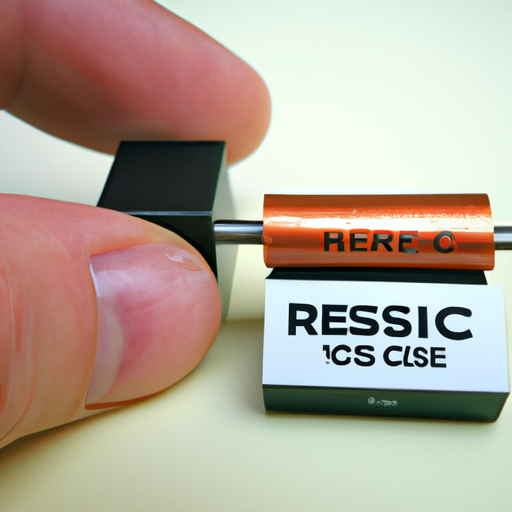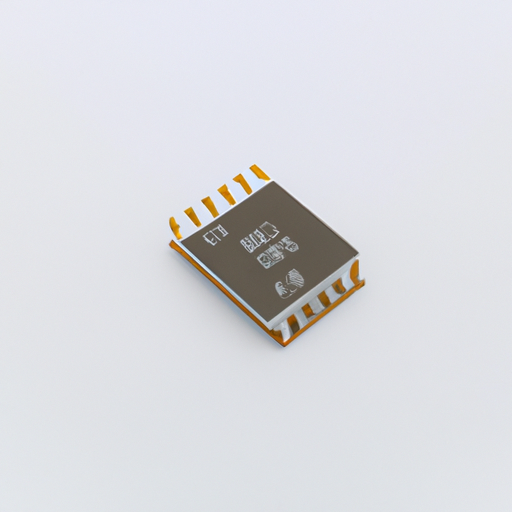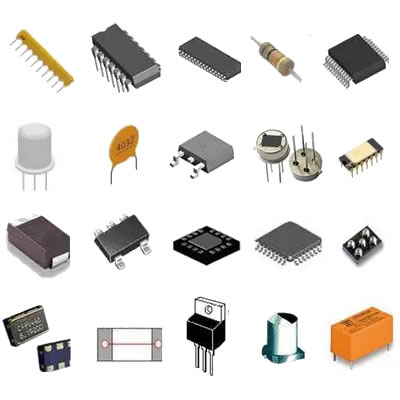What are the application scenarios of resistors and what industries include them?
What are the Application Scenarios of Resistors and What Industries Include Them?
I. Introduction
Resistors are fundamental components in electrical and electronic circuits, serving a variety of essential functions. Defined as passive electrical devices that oppose the flow of current, resistors play a crucial role in controlling voltage and current levels within circuits. Their importance cannot be overstated, as they are integral to the operation of countless devices we use daily. This blog post will explore the various application scenarios of resistors and the industries that rely on them, providing a comprehensive understanding of their significance in modern technology.
II. Basic Principles of Resistors
A. Ohm's Law and Resistance
At the heart of resistor functionality lies Ohm's Law, which states that the current (I) flowing through a conductor between two points is directly proportional to the voltage (V) across the two points and inversely proportional to the resistance (R) of the conductor. This relationship is expressed mathematically as V = I × R. Understanding this principle is essential for grasping how resistors operate within circuits.
B. Types of Resistors
Resistors come in various types, each designed for specific applications:
1. **Fixed Resistors**: These resistors have a constant resistance value and are commonly used in circuits where precise resistance is required.
2. **Variable Resistors**: Also known as potentiometers and rheostats, these resistors allow for adjustable resistance, making them ideal for applications like volume controls in audio equipment.
3. **Specialty Resistors**: This category includes thermistors, which change resistance with temperature, and photoresistors, which vary resistance based on light exposure. These resistors are crucial in applications requiring sensitivity to environmental changes.
C. Key Specifications and Ratings
When selecting resistors for specific applications, several key specifications must be considered:
1. **Resistance Value**: Measured in ohms, this value determines how much the resistor opposes current flow.
2. **Power Rating**: This indicates the maximum power the resistor can dissipate without being damaged, typically measured in watts.
3. **Tolerance**: This specification indicates how much the actual resistance can vary from the stated value, expressed as a percentage.
III. Application Scenarios of Resistors
Resistors find application in numerous scenarios across various fields. Here are some of the most common uses:
A. Voltage Division
Resistors are often used in voltage divider circuits, which split a voltage into smaller, manageable parts. This is particularly useful in signal processing applications, where specific voltage levels are required for different components. For instance, in audio equipment, voltage dividers can help adjust signal levels to prevent distortion.
B. Current Limiting
In LED circuits, resistors are essential for current limiting. LEDs require a specific current to operate efficiently, and without a resistor, excessive current can lead to overheating and failure. Resistors also protect sensitive components in circuits by ensuring that current levels remain within safe limits.
C. Pull-Up and Pull-Down Resistors
In digital logic circuits, pull-up and pull-down resistors are used to ensure that inputs to microcontrollers or logic gates are at a defined voltage level when not actively driven. This is crucial for preventing floating inputs, which can lead to unpredictable behavior in electronic systems.
D. Signal Conditioning
Resistors play a vital role in signal conditioning, which involves filtering and amplifying signals to make them suitable for processing. In analog signal processing, resistors are used in conjunction with capacitors and inductors to create filters that can isolate specific frequency ranges, enhancing the quality of the signal.
E. Temperature Sensing
Thermistors, a type of specialty resistor, are widely used in temperature measurement applications. They change resistance based on temperature variations, making them ideal for HVAC systems, where accurate temperature control is essential for comfort and energy efficiency.
F. Timing Circuits
Resistors are integral to RC (resistor-capacitor) timing circuits, which are used in oscillators and timers. By controlling the charge and discharge rates of capacitors, resistors help determine the timing intervals in various electronic applications, from simple timers to complex signal generators.
IV. Industries Utilizing Resistors
The versatility of resistors means they are found in a wide range of industries. Here are some key sectors that rely heavily on resistors:
A. Consumer Electronics
In the consumer electronics industry, resistors are ubiquitous. They are found in smartphones, tablets, and home appliances, where they help manage power consumption, control signals, and ensure the safe operation of devices.
B. Automotive Industry
The automotive industry utilizes resistors in electronic control units (ECUs) and safety systems. Resistors are crucial for managing sensor inputs, controlling actuators, and ensuring the reliability of electronic systems in vehicles.
C. Telecommunications
In telecommunications, resistors are essential for signal processing equipment and network infrastructure. They help maintain signal integrity and manage power levels in devices such as routers, switches, and amplifiers.
D. Medical Devices
Medical devices, including diagnostic equipment and monitoring systems, rely on resistors for accurate measurements and reliable operation. Resistors are used in various applications, from patient monitoring to imaging systems, where precision is critical.
E. Industrial Automation
In industrial automation, resistors are used in control systems and robotics. They help regulate power levels, manage sensor inputs, and ensure the safe operation of machinery in manufacturing environments.
F. Renewable Energy
The renewable energy sector also relies on resistors, particularly in solar inverters and wind turbine controllers. Resistors help manage power conversion and ensure the efficient operation of renewable energy systems.
V. Future Trends and Innovations
As technology continues to evolve, so do the applications and designs of resistors. Some future trends include:
A. Miniaturization of Resistors
With the push for smaller and more efficient electronic devices, the miniaturization of resistors is becoming increasingly important. This trend allows for more compact designs without sacrificing performance.
B. Smart Resistors and IoT Applications
The rise of the Internet of Things (IoT) is driving the development of smart resistors that can communicate and adapt to changing conditions. These resistors can enhance the functionality of connected devices, making them more responsive and efficient.
C. Advances in Materials and Manufacturing Techniques
Innovations in materials and manufacturing techniques are leading to the development of more reliable and efficient resistors. These advancements can improve performance, reduce costs, and enhance the overall quality of electronic components.
VI. Conclusion
In summary, resistors are indispensable components in electrical and electronic circuits, with a wide range of applications across various industries. From voltage division and current limiting to temperature sensing and signal conditioning, their versatility is unmatched. As technology continues to advance, the relevance of resistors remains strong, underscoring the importance of understanding their applications. Whether in consumer electronics, automotive systems, telecommunications, or renewable energy, resistors will continue to play a vital role in shaping the future of technology.
VII. References
1. Academic Journals on Electronics and Electrical Engineering
2. Industry Reports on Resistor Applications
3. Textbooks on Electronics and Electrical Engineering Principles
This blog post provides a comprehensive overview of the application scenarios of resistors and the industries that utilize them, highlighting their significance in modern technology.







